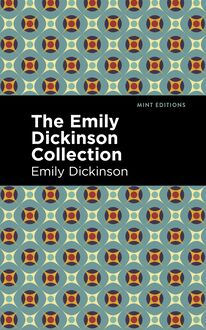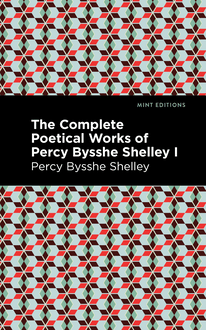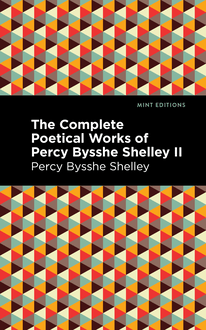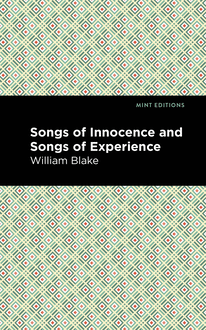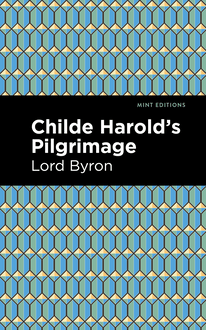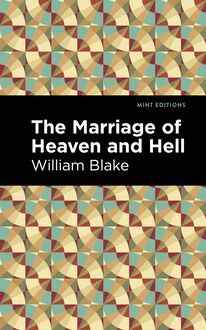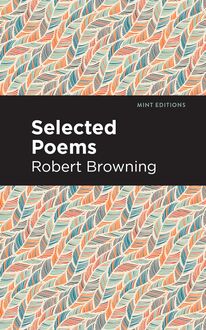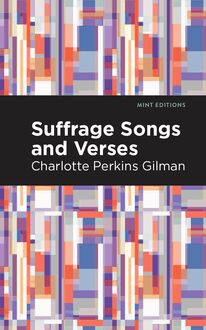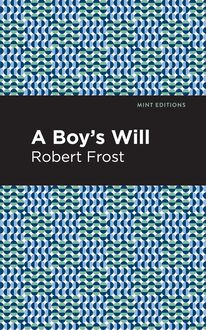-
 Univers
Univers
-
 Ebooks
Ebooks
-
 Livres audio
Livres audio
-
 Presse
Presse
-
 Podcasts
Podcasts
-
 BD
BD
-
 Documents
Documents
-
- Cours
- Révisions
- Ressources pédagogiques
- Sciences de l’éducation
- Manuels scolaires
- Langues
- Travaux de classe
- Annales de BEP
- Etudes supérieures
- Maternelle et primaire
- Fiches de lecture
- Orientation scolaire
- Méthodologie
- Corrigés de devoir
- Annales d’examens et concours
- Annales du bac
- Annales du brevet
- Rapports de stage
La lecture à portée de main

Vous pourrez modifier la taille du texte de cet ouvrage
Découvre YouScribe en t'inscrivant gratuitement
Je m'inscrisDécouvre YouScribe en t'inscrivant gratuitement
Je m'inscrisEn savoir plus
Vous pourrez modifier la taille du texte de cet ouvrage
En savoir plus

Description
With satire, adventure, and imagination, Phantasmagoria and Other Poems explores subjects such as the supernatural, love, friendship, and nature. Featuring sixteen of Lewis Carroll’s poems, Phantasmagoria and Other Poems has something to appeal to everyone. Among this collection is A Sea Dirge, in which the speaker, equipped with evocative figurative language, explains their contempt for the sea. In Echoes, a young girl discloses her encounter with a ghost. With precise diction, A Game of Fives takes the form of a nursery rhyme as the poem follows five girls as they age, mapping their changing relationship and value to society. At the height of Carroll’s use of satire and humor, A Valentine is dedicated to a friend that was concerned that Carroll had not been sad enough when he was away. With wit and decorated lyricism, Carroll replies to his concern. The title poem in Phantasmagoria and Other Poems is known as Carroll’s longest piece of poetry, and has been hailed as a fan favorite. Following an odd man named Tibbets, Phantasmagoria tells the tale of a man getting candid with the ghost that haunts him. Presented as a narrative discussion, Tibbets asks the ghost why they are haunting him, prompting the ghost to tell all the responsibilities a ghost has. Haunting is the ghost’s new job, and they must toe the company line unless they want to answer to the king of the dead.
With a meta and whimsical approach, Phantasmagoria and Other Poems explores adventurous stories, the supernatural, and relationships. Soaked with satire and imagination, Phantasmagoria and Other Poems is an entertaining, approachable experience with poetry. Each poem delights with dazzling word play and rhythm as it uses accessible language and strong imagery, crafting poetry that is easy for a wide audience to enjoy.
Now presented in a readable font and redesigned with an eye-catching new cover, Phantasmagoria and Other Poems by Lewis Carroll is the perfect companion for anyone searching for an escape.
Sujets
Informations
| Publié par | Mint Editions |
| Date de parution | 08 décembre 2020 |
| Nombre de lectures | 0 |
| EAN13 | 9781513274041 |
| Langue | English |
Informations légales : prix de location à la page 0,0300€. Cette information est donnée uniquement à titre indicatif conformément à la législation en vigueur.
Extrait
Phantasmagoria and Other Poems
Lewis Carroll
Phantasmagoria and Other Poems was first published in 1869.
This edition published by Mint Editions 2021.
ISBN 9781513269047 | E-ISBN 9781513274041
Published by Mint Editions®
minteditionbooks.com
Publishing Director: Jennifer Newens
Design & Production: Rachel Lopez Metzger
Typesetting: Westchester Publishing Services
C ONTENTS P HANTASMAGORIA , IN S EVEN C ANTOS I. The Trystyng II. Hys Fyve Rules III. Scarmoges IV. Hys Nouryture V. Byckerment VI. Dyscomfyture VII. Sad Souvenaunce E CHOES A S EA D IRGE Y E C ARPETTE K NYGHTE H IAWATHA ’ S P HOTOGRAPHING M ELANCHOLETTA A V ALENTINE T HE T HREE V OICES The First Voice The Second Voice The Third Voice T ÈMA C ON V ARIAZIÒNI A G AME OF F IVES P OETA F IT , N ON N ASCITUR S IZE AND T EARS A TALANTA IN C AMDEN -T OWN T HE L ANG C OORTIN ’ F OUR R IDDLES F AME ’ S P ENNY -T RUMPET
P HANTASMAGORIA , IN S EVEN C ANTOS
Canto I
T HE T RYSTYNG
One winter night, at half-past nine,
Cold, tired, and cross, and muddy,
I had come home, too late to dine,
And supper, with cigars and wine,
Was waiting in the study.
There was a strangeness in the room,
And Something white and wavy
Was standing near me in the gloom—
I took it for the carpet-broom
Left by that careless slavey.
But presently the Thing began
To shiver and to sneeze:
On which I said “Come, come, my man!
That’s a most inconsiderate plan.
Less noise there, if you please!”
“I’ve caught a cold,” the Thing replies,
“Out there upon the landing.”
I turned to look in some surprise,
And there, before my very eyes,
A little Ghost was standing!
He trembled when he caught my eye,
And got behind a chair.
“How came you here,” I said, “and why?
I never saw a thing so shy.
Come out! Don’t shiver there!”
He said “I’d gladly tell you how,
And also tell you why;
But” (here he gave a little bow)
“You’re in so bad a temper now,
You’d think it all a lie.
“And as to being in a fright,
Allow me to remark
That Ghosts have just as good a right
In every way, to fear the light,
As Men to fear the dark.”
“No plea,” said I, “can well excuse
Such cowardice in you:
For Ghosts can visit when they choose,
Whereas we Humans ca’n’t refuse
To grant the interview.”
He said “A flutter of alarm
Is not unnatural, is it?
I really feared you meant some harm:
But, now I see that you are calm,
Let me explain my visit.
“Houses are classed, I beg to state,
According to the number
Of Ghosts that they accommodate:
(The Tenant merely counts as weight ,
With Coals and other lumber).
“This is a ‘one-ghost’ house, and you
When you arrived last summer,
May have remarked a Spectre who
Was doing all that Ghosts can do
To welcome the new-comer.
“In Villas this is always done—
However cheaply rented:
For, though of course there’s less of fun
When there is only room for one,
Ghosts have to be contented.
“That Spectre left you on the Third—
Since then you’ve not been haunted:
For, as he never sent us word,
’Twas quite by accident we heard
That any one was wanted.
“A Spectre has first choice, by right,
In filling up a vacancy;
Then Phantom, Goblin, Elf, and Sprite—
If all these fail them, they invite
The nicest Ghoul that they can see.
“The Spectres said the place was low,
And that you kept bad wine:
So, as a Phantom had to go,
And I was first, of course, you know,
I couldn’t well decline.”
“No doubt,” said I, “they settled who
Was fittest to be sent
Yet still to choose a brat like you,
To haunt a man of forty-two,
Was no great compliment!”
“I’m not so young, Sir,” he replied,
“As you might think. The fact is,
In caverns by the water-side,
And other places that I’ve tried,
I’ve had a lot of practice:
“But I have never taken yet
A strict domestic part,
And in my flurry I forget
The Five Good Rules of Etiquette
We have to know by heart.”
My sympathies were warming fast
Towards the little fellow:
He was so utterly aghast
At having found a Man at last,
And looked so scared and yellow.
“At least,” I said, “I’m glad to find
A Ghost is not a dumb thing!
But pray sit down: you’ll feel inclined
(If, like myself, you have not dined)
To take a snack of something:
“Though, certainly, you don’t appear
A thing to offer food to!
And then I shall be glad to hear—
If you will say them loud and clear—
The Rules that you allude to.”
“Thanks! You shall hear them by and by.
This is a piece of luck!”
“What may I offer you?” said I.
“Well, since you are so kind, I’ll try
A little bit of duck.
“ One slice! And may I ask you for
Another drop of gravy?”
I sat and looked at him in awe,
For certainly I never saw
A thing so white and wavy.
And still he seemed to grow more white,
More vapoury, and wavier—
Seen in the dim and flickering light,
As he proceeded to recite
His “Maxims of Behaviour.”
Canto II
H YS F YVE R ULES
“My First—but don’t suppose,” he said,
“I’m setting you a riddle—
Is—if your Victim be in bed,
Don’t touch the curtains at his head,
But take them in the middle,
“And wave them slowly in and out,
While drawing them asunder;
And in a minute’s time, no doubt,
He’ll raise his head and look about
With eyes of wrath and wonder.
“And here you must on no pretence
Make the first observation.
Wait for the Victim to commence:
No Ghost of any common sense
Begins a conversation.
“If he should say ‘ How came you here ?’
(The way that you began, Sir,)
In such a case your course is clear—
‘ On the bat’s back , my little dear !’
Is the appropriate answer.
“If after this he says no more,
You’d best perhaps curtail your
Exertions—go and shake the door,
And then, if he begins to snore,
You’ll know the thing’s a failure.
“By day, if he should be alone—
At home or on a walk—
You merely give a hollow groan,
To indicate the kind of tone
In which you mean to talk.
“But if you find him with his friends,
The thing is rather harder.
In such a case success depends
On picking up some candle-ends,
Or butter, in the larder.
“With this you make a kind of slide
(It answers best with suet),
On which you must contrive to glide,
And swing yourself from side to side—
One soon learns how to do it.
“The Second tells us what is right
In ceremonious calls:—
‘ First burn a blue or crimson light ’
(A thing I quite forgot to-night),
‘ Then scratch the door or walls .’”
I said “You’ll visit here no more,
If you attempt the Guy.
I’ll have no bonfires on my floor—
And, as for scratching at the door,
I’d like to see you try!”
“The Third was written to protect
The interests of the Victim,
And tells us, as I recollect,
To treat him with a grave respect ,
And not to contradict him .”
“That’s plain,” said I, “as Tare and Tret,
To any comprehension:
I only wish some Ghosts I’ve met
Would not so constantly forget
The maxim that you mention!”
“Perhaps,” he said, “ you first transgressed
The laws of hospitality:
All Ghosts instinctively detest
The Man that fails to treat his guest
With proper cordiality.
“If you address a Ghost as ‘Thing!’
Or strike him with a hatchet,
He is permitted by the King
To drop all formal parleying—
And then you’re sure to catch it!
“The Fourth prohibits trespassing
Where other Ghosts are quartered:
And those convicted of the thing
(Unless when pardoned by the King)
Must instantly be slaughtered.
“That simply means ‘be cut up small’:
Ghosts soon unite anew.
The process scarcely hurts at all—
Not more than when you ’re what you call
‘Cut up’ by a Review.
“The Fifth is one you may prefer
That I should quote entire:—
The King must be addressed as ‘ Sir .’
This , from a simple courtier ,
Is all the Laws require :
“ But , should you wish to do the thing
With out-and-out politeness ,
Accost him as ‘ My Goblin King !
And always use , in answering ,
The phrase ‘ Your Royal Whiteness !’
“I’m getting rather hoarse, I fear,
After so much reciting:
So, if you don’t object, my dear,
We’ll try a glass of bitter beer—
I think it looks inviting.”
Canto III
S CARMOGES
“And did you really walk,” said I,
“On such a wretched night?
I always fancied Ghosts could fly—
If not exactly in the sky,
Yet at a fairish height.”
“It’s very well,” said he, “for Kings
To soar above the earth:
But Phantoms often find that wings—
Like many other pleasant things—
Cost more than they are worth.
“Spectres of course are rich, and so
Can buy them from the Elves:
But we prefer to keep below—
They’re stupid company, you know,
For any but themselves:
“For, though they claim to be exempt
From pride, they treat a Phantom
As something quite beneath contempt—
Just as no Turkey ever dreamt
Of noticing a Bantam.”
“They seem too proud,” said I, “to go
To houses such as mine.
Pray, how did they contrive to know
So quickly that ‘the place was low,’
And that I ‘kept bad wine’?”
“Inspector
Attention
En entrant sur cette page, vous certifiez :
- 1. avoir atteint l'âge légal de majorité de votre pays de résidence.
- 2. avoir pris connaissance du caractère érotique de ce document.
- 3. vous engager à ne pas diffuser le contenu de ce document.
- 4. consulter ce document à titre purement personnel en n'impliquant aucune société ou organisme d'État.
- 5. vous engager à mettre en oeuvre tous les moyens existants à ce jour pour empêcher n'importe quel mineur d'accéder à ce document.
- 6. déclarer n'être choqué(e) par aucun type de sexualité.
YouScribe ne pourra pas être tenu responsable en cas de non-respect des points précédemment énumérés. Bonne lecture !
-
 Univers
Univers
-
 Ebooks
Ebooks
-
 Livres audio
Livres audio
-
 Presse
Presse
-
 Podcasts
Podcasts
-
 BD
BD
-
 Documents
Documents
-
Jeunesse
-
Littérature
-
Ressources professionnelles
-
Santé et bien-être
-
Savoirs
-
Education
-
Loisirs et hobbies
-
Art, musique et cinéma
-
Actualité et débat de société
-
Jeunesse
-
Littérature
-
Ressources professionnelles
-
Santé et bien-être
-
Savoirs
-
Education
-
Loisirs et hobbies
-
Art, musique et cinéma
-
Actualité et débat de société
-
Actualités
-
Lifestyle
-
Presse jeunesse
-
Presse professionnelle
-
Pratique
-
Presse sportive
-
Presse internationale
-
Culture & Médias
-
Action et Aventures
-
Science-fiction et Fantasy
-
Société
-
Jeunesse
-
Littérature
-
Ressources professionnelles
-
Santé et bien-être
-
Savoirs
-
Education
-
Loisirs et hobbies
-
Art, musique et cinéma
-
Actualité et débat de société
- Cours
- Révisions
- Ressources pédagogiques
- Sciences de l’éducation
- Manuels scolaires
- Langues
- Travaux de classe
- Annales de BEP
- Etudes supérieures
- Maternelle et primaire
- Fiches de lecture
- Orientation scolaire
- Méthodologie
- Corrigés de devoir
- Annales d’examens et concours
- Annales du bac
- Annales du brevet
- Rapports de stage

